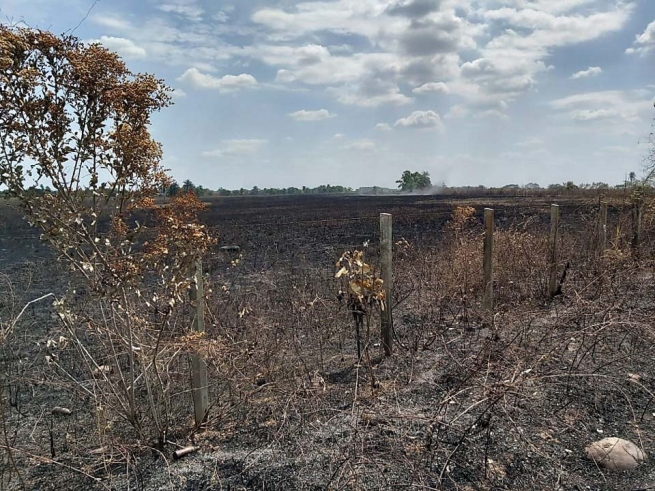A few days ago, in fact, what happened in 2015 happened again: "violence against the Salesian Agricultural Center of Barinas." "About 110 students, managers, teachers and workers who live in the Salesian Agricultural School are in danger for a series of violent acts that have intensified since February 2, 2020, with the presence of unknown persons arriving at the institute - burning land, killing and stealing cattle," wrote Briceida Morales.
Despite the decree of a precautionary agri-food measure that is supposed to safeguard the 1,894 hectares of the Salesian Agronomic Technical School of Barinas, a decree issued by a regional court on May 12, 2010, according to Fr Bernardo Ramírez's report - SDB, Director of the Institute - since the beginning in February they have witnessed true raids, with people transported by car and truck to the institute's grounds to set fire to pastures and other structures specially designed for animals.
On that occasion, a group that identified itself as workers of the National Electricity Cooperation (CorPoElec) entered the territory by cutting down the fence, trees and burning a "small forest" maintained and cared for by 215 students from the country's different states. In addition, on that same occasion, the criminals set fire to a truck and burnt the electrical panel of a pump that supplied the institute with water.
Fr Ramírez denounced that, in the attack suffered on February 12, about 20 hectares of land were burned and 40 farm animals were stolen or killed, including cattle and dairy buffalo.
This deplorable situation touches the reality of an institute that accompanies the formation of 110 young internee students, who are acquiring very useful skills for the area, as well as that of the center's 80 workers.
The Salesian Agricultural School of Barinas is an innovative center in the Venezuelan educational system and educates under the motto: "School that teaches by working and producing." The educational work makes rational use of the land and its natural resources with students carrying out their agricultural and livestock practices.
Source: Qué Pasa en Venezuela - Social Communication Office of the Venezuelan Province


